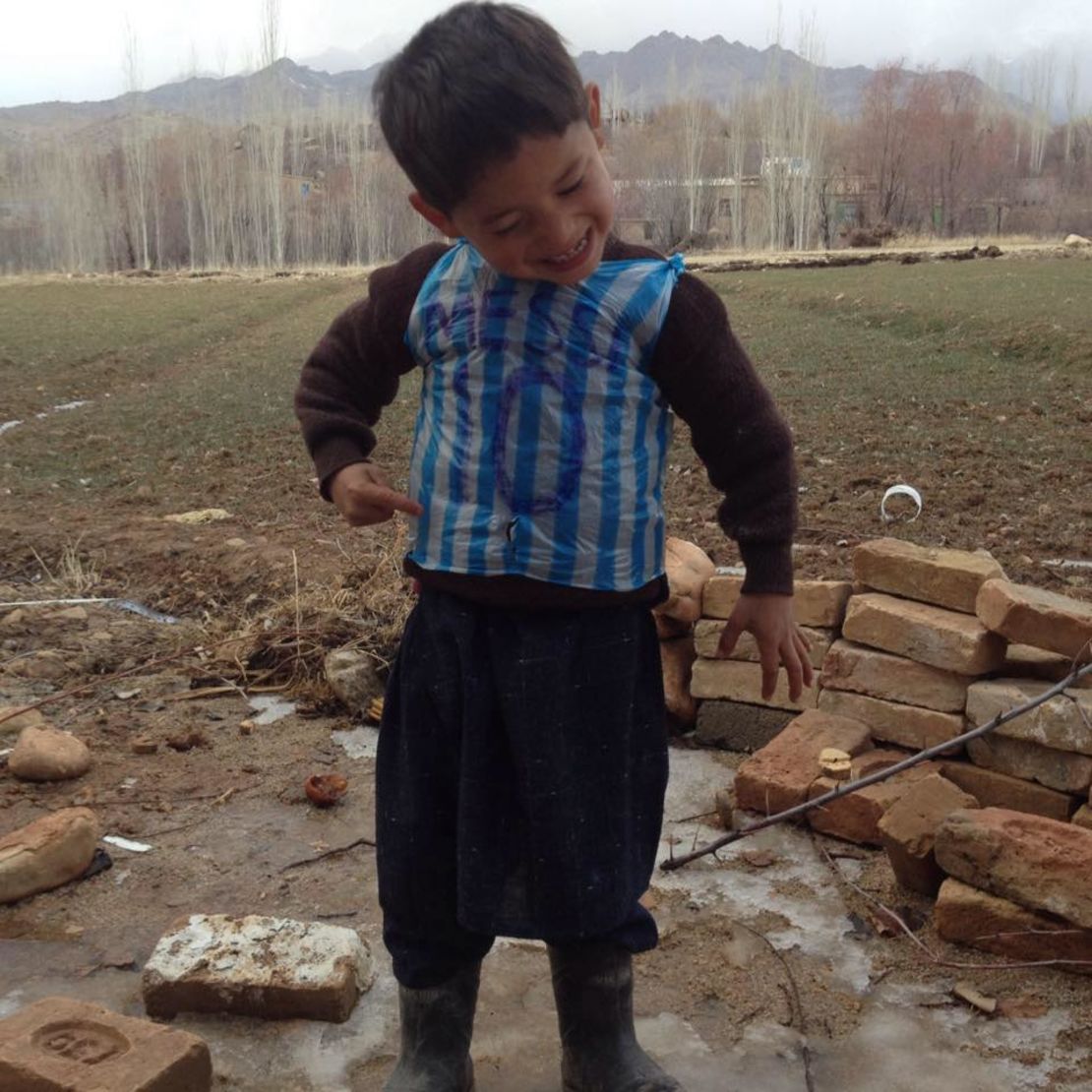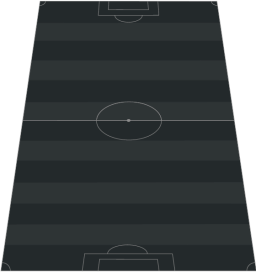Story highlights
United Nations Children Fund presents gifts from star
Image of young Messi fan wearing plastic bag 'shirt' went viral
Five-year-old Murtaza Ahmadi lives in Afghan village and wants to become footballer
The youngster pictured wearing a striped plastic bag with Lionel Messi’s name and number on it is now the proud owner of a real Messi shirt – thanks to the soccer superstar and the United Nations Children Fund (UNICEF).
Murtaza Ahmadi – found in Afghanistan earlier this month after his picture became an internet sensation – was given two autographed shirts and a signed football from the iconic player by UNICEF workers, his father Arif Ahmadi told CNN.
Arif said it was “one of the happiest moments” of the five-year-old’s life.
His son’s only regret, he said, was that Messi – who scored twice for Barcelona as they beat Arsenal in the Champions League in London on Tuesday – was not able to have been there.
But Arif said Murtaza, unfazed by that, had been wearing one of the shirts and playing with the football ever since the gifts arrived.
“I love Messi, and my shirt says Messi loves me,” UNICEF quoted Murtaza as saying.
Earlier this month, the Afghan Football Federation told CNN that Messi’s charitable foundation was trying to set up a meeting between the five-time world player of the year and Murtaza.
Messi’s club Barcelona informed CNN it would be willing to help, but stressed that any such meeting would be down to the player and his management.
Asked about becoming an internet sensation, Murtaza told CNN from the family’s farm in Jaghori, southwest of Kabul: “The whole people in the world know me now.”

His father, who said the impacts of reports about his son from around the globe had “inspired me,” added that his dream was “to have a football stadium in our district.”
He explained that the plastic bag jersey had come about when he told his son “that we were living in a poor village far from the city and it was impossible for me to get him the shirt.”
Arif added: “He kept crying for days, asking for the shirt, until his brother Hamayon helped him make one from the plastic bag to make him happy. He stopped crying after wearing that plastic bag shirt.”
Internet users began searching for the mystery boy in mid-January when a Messi fan account on Twitter posted an image of him wearing the plastic bag Messi shirt.
The picture showed him only from the back – a small boy with a buzz cut wearing a brown knitted sweater – with a caption that read: “A kid in Iraq …” and included an emoji of a breaking heart.
The Iraq reference turned out to be false, and a Twitter user who wrote that the boy was from the city of Dohuk in northern Iraq later admitted that he had made that up.
Claims by a television station in Kurdistan that they had found the boy in Dohuk were also false.
“I feel very happy that he is famous now,” Arif said. “He is really excited that his pictures are everywhere now. He wants to become a football player in the future, and go to school.”
Last month, Messi reclaimed his title as the world’s best player when he won his fifth Ballon d’Or at a lavish ceremony in Zurich.
Meanwhile, UNICEF announced that it has renewed its partnership with Barcelona on a program to give some of the world’s most vulnerable children the chance to participate in sports.
The program, in its 10th year, has helped more than one million children in Angola, Brazil, China, Ghana, Malawi, South Africa and Swaziland, and the new four-year agreement will see Barcelona increase its annual contribution from €1.5 million (£1.65 million) to €2 million.
“We are united in the fight for children’s rights and the promotion of education through sport,” Josep Maria Bartomeu, the Barcelona president, said.

CNN’s Masoud Popalzai contributed to this report.











